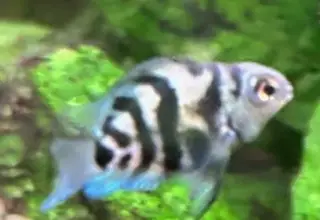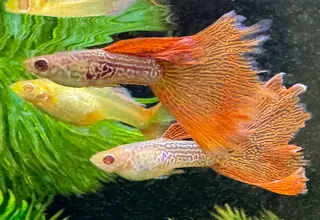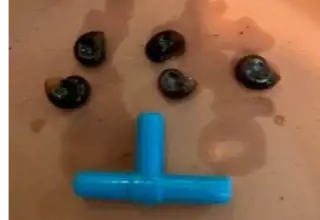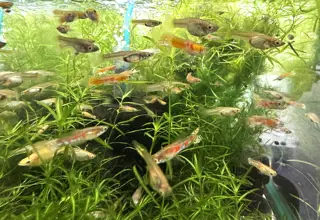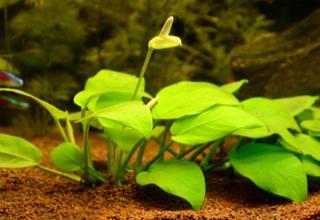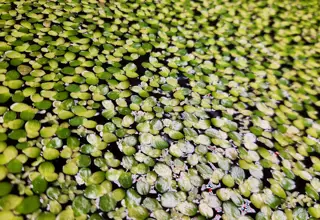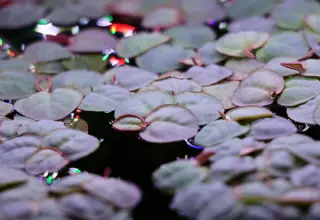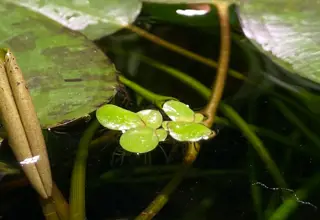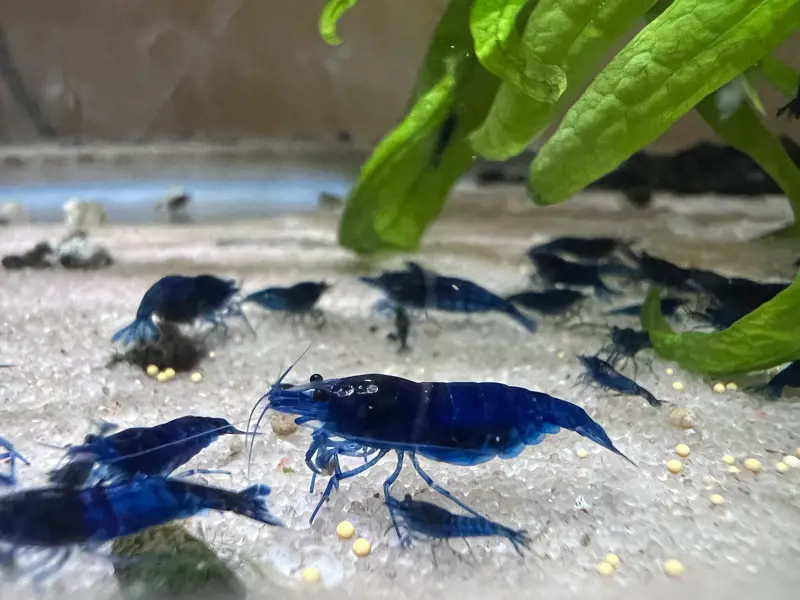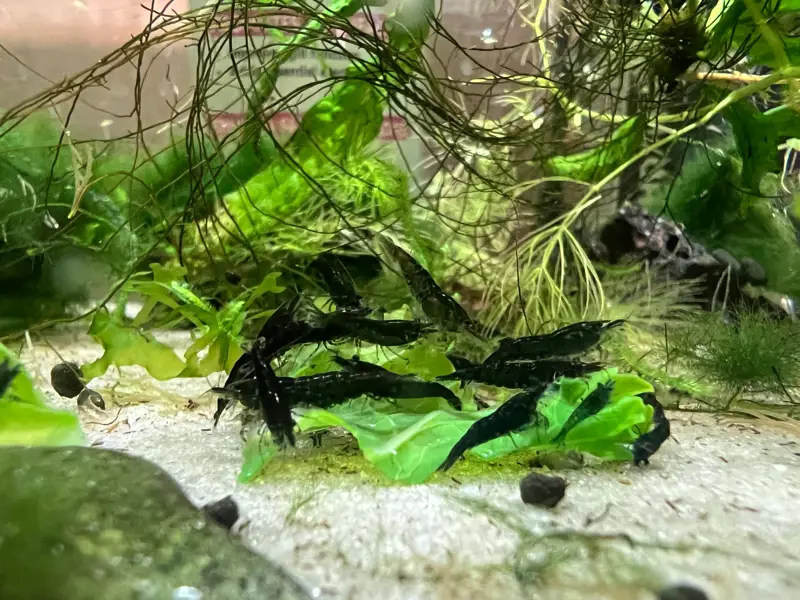13 Best Aquarium Background Plants
Posted by on 12/28/2023
If you're planning out the layout of your next aquascape, or maybe you're just looking to rearrange your tank, adding background plants is one of the best ways to improve the appearance of your tank.
With a variety of background plants to choose from, it may be hard to find the best plant for your aquarium. In this post, we're going to recommend 13 aquarium background plants, for both high-tech and low-tech aquariums.
High-Tech vs Low-Tech Aquarium Background Plants
When deciding between aquarium background plants, it's important to grasp the difference between high-tech and low-tech plants.
The main difference between high-tech and low-tech aquarium plants, is that high-tech plants require CO2 injection, a nutrient-dosing regime, and powerful lighting. Low-tech plants do not require these tank additions, but will benefit from them if provided.
Plants that require a "high-tech" setup are typically more difficult to keep but produce brighter colors and lush, fast growth.
Low-tech plants require minimal lighting but grow at a much slower rate. Beginner hobbyists should start with low-tech plants, and eventually graduate to more complicated high-tech plants.
High-Tech Aquarium Background Plants
Assuming you have an ample supply of CO2 and a powerful lighting system, here are some of our favorite high-tech aquarium background plants.
Rotala sp. Green
One of the easiest to care-for plants on our high-tech list of background plants has to be Rotala sp. Green. This plant is fast growing and can be propagating by trimming the plant along the stem, and either re-potting or tossing the cut portion.
Rotala sp. Green is a beautiful plant, and with frequent trimming can give the aquarium a bright green backdrop.
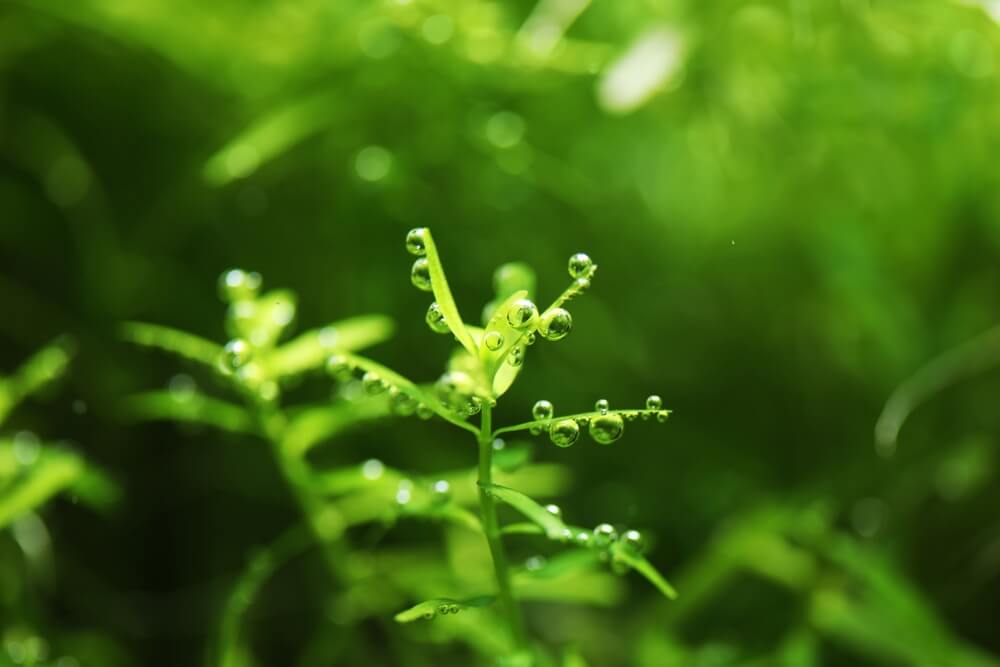
Rotala Indica
Next up is Rotala Indica. This background plant takes on two different appearances depending on whether or not the hobbyist chooses to grow the plant in an emersed or submerged state. When grown above the water line, Rotala Indica has rounded leaves. When completely submerged, the plant has more narrow leaves, similar to Rotala sp. Green.
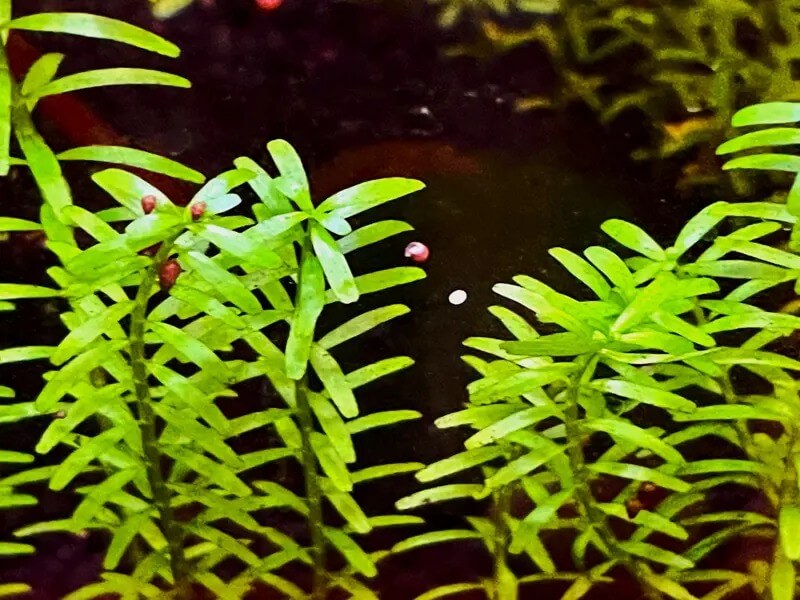
Alternanthera Reineckii Scarlet Temple
Large aquarium owners may be surprised to see Alterna Reineckii make the list, but hobbyists with smaller tanks should have no problem keeping AR Scarlet Temple as a background plant in their aquascapes.
When given proper conditions, this plant can grow to be quite tall, eventually reaching the surface in tanks between 10-30 gallons in size.
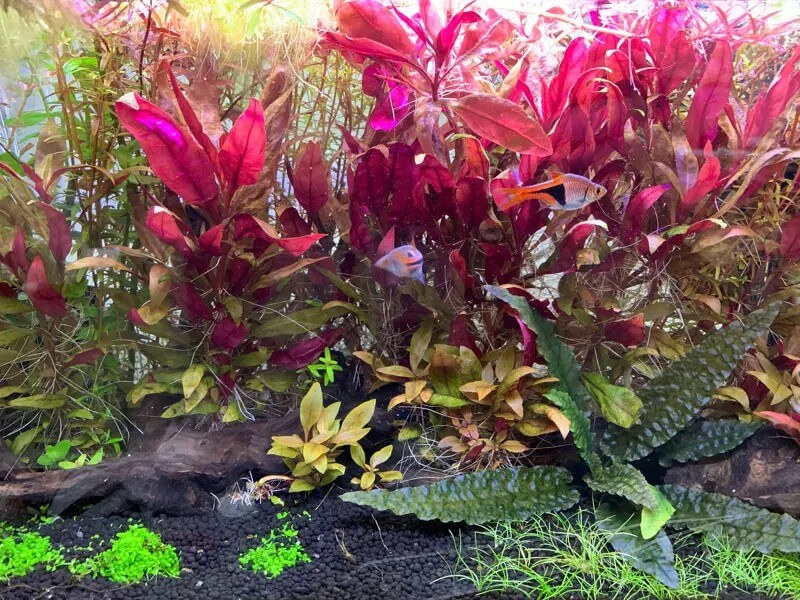
Pogostemon Stellatus Octopus
Hobbyists who want to showcase wild, jungle-like growth will appreciate Pogostemon Stellatus Octopus. The plant is relatively easy to care for and is often pursued for its sprawling leaves that resemble an Octopus's tentacles.
When given proper conditions, this plant can quickly cover the background of any aquarium.
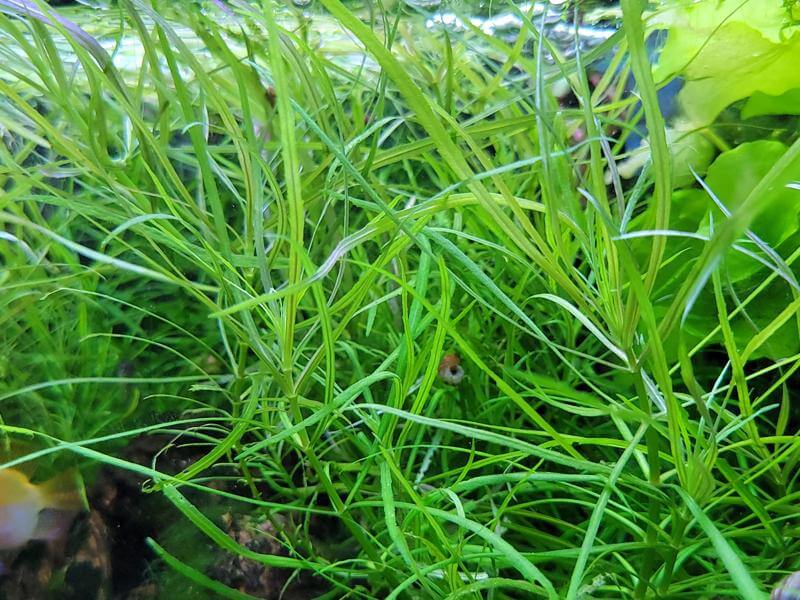
Rotala Blood Red Singapore Variant
Hobbyists looking for another red plant to add to their tanks should consider the Rotala Blood Red Singapore Variant. The plant is capable of producing a deep red color, often pursued by hobbyists looking to create Dutch-style aquascapes.
Ample CO2, good surface agitation, frequent water changes, and nutrient dosing are a must when caring for this aquatic plant.
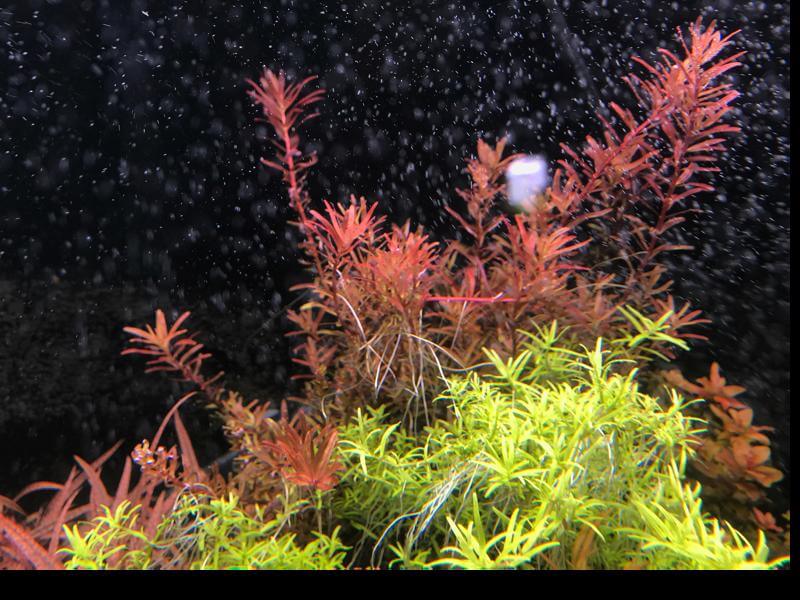
Rotala H'ra
Relatively new to the aquatic plant seen is Rotala H'ra. The plant is quite hardy, and can technically survive in lower light conditions. However, coloration will be much more pale, and the plant's growth rate will slow to a crawl.
Hobbyists looking to see the plant's bright colors will need strong lighting, CO2, and a nutrient-dosing regime.
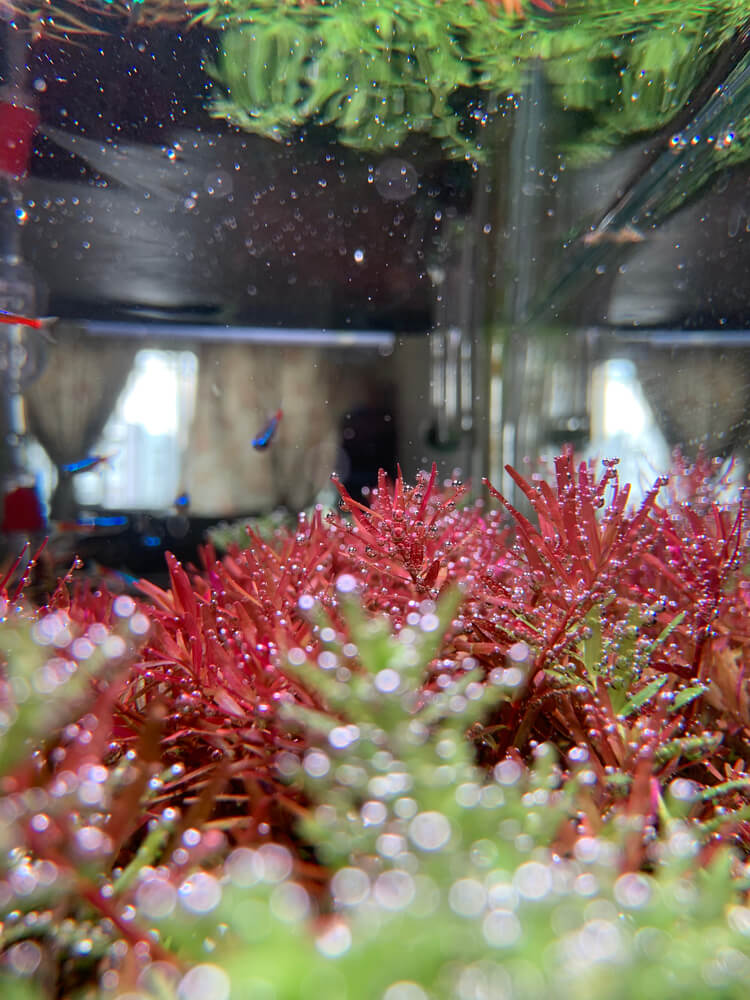
Cabomba Furcata
Hobbyists may already be familiar with Cabomba, but did you know there is a pink-colored Cabomba plant? This rare plant variant is always in demand by hobbyists with high-tech setups, but be warned - it's difficult to care for, and should only be cared for by the advanced aquarist.
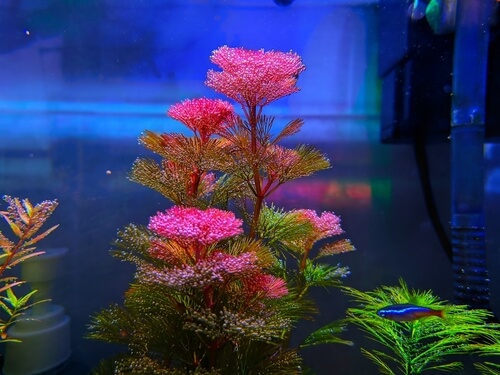
Low-Tech Aquarium Plants
If you're new to aquatic plant-keeping, then low-tech aquarium plants are what you're after. These plants are easy to care for and are still equally as attractive as some of their high-tech counterparts.
Here are a few low-tech aquarium background plants to get you started.
🛒 Shop Aquarium Plants Fish on Light Fish
Water Wisteria
Known for its unique appearance, water wisteria is a go-to for many new aquarium plant owners. This plant is known to be incredibly easy to keep, and hobbyists won't need to do much besides regular tank maintenance to keep the plant in good shape.
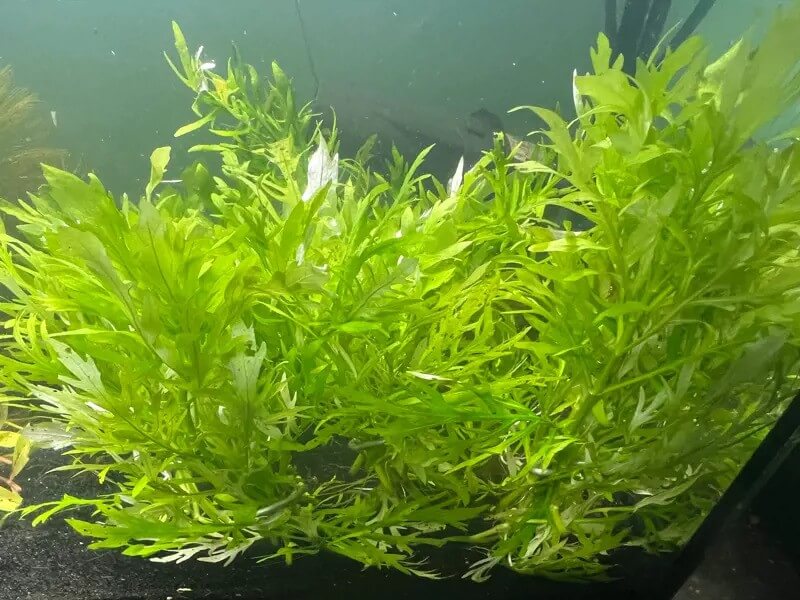
Java Fern
Java Fern is one of the most commonly recommended plants for beginners. The plant is hardy and is a great rhizome-based plant for those new to plants with this type of root system.
The plant's growth rate is slow, so it may take quite a few months, even years to have the plant cover the back of your aquarium. Unfortunately, if one of the plant's leaves experiences a nutrient deficiency, you'll have to trim off the entire leaf! Keep this in mind before choosing this plant.
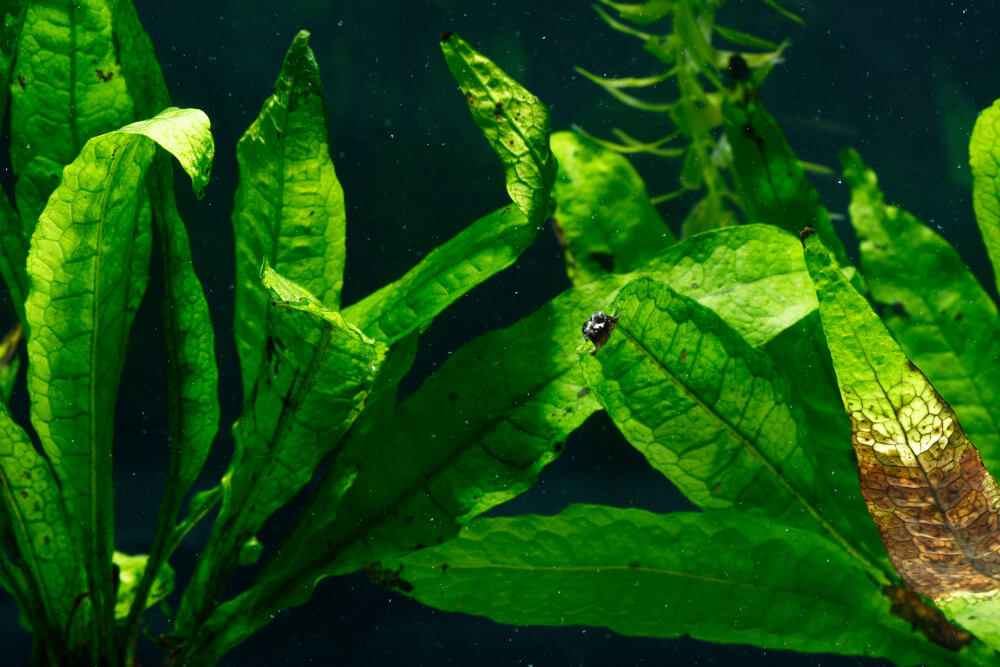
Amazon Sword
Similar to Java Fern, the Amazon Sword is known for its pointed narrow leaves. The plant can thrive in both low-tech and high-tech aquarium setups, making this plant quite popular among the aquarium community, along with other plants such as Anubias.
Small-sized starter plants typically retail for around $8.00, and due to their popularity, hobbyists should have little trouble finding a few of these plants for sale.
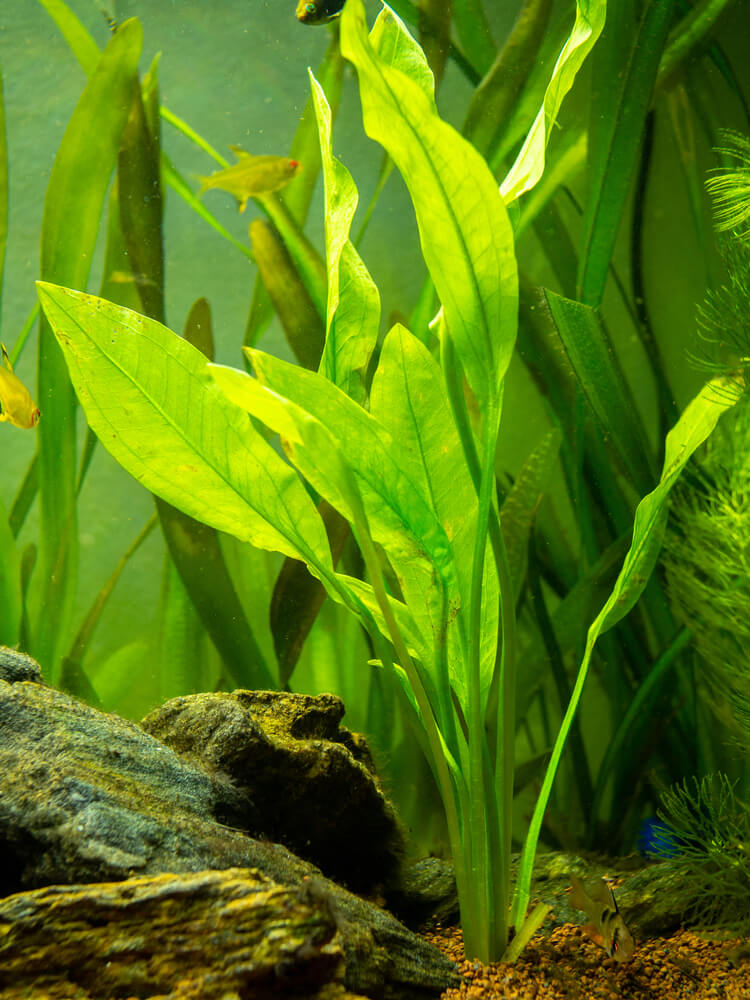
Bacopa monnieri
Bacopa plants are a genus of easy-to-care-for aquatic plants, known for their vertical growth and small leaves. Bacopa monnieri is native to the Singapore, and hobbyists should have little trouble keeping this plant alive in an aquarium without CO2.
The plant's leaves are quite small and fragile, so hobbyists will want to have a good set of aquarium tweezers available for planting.
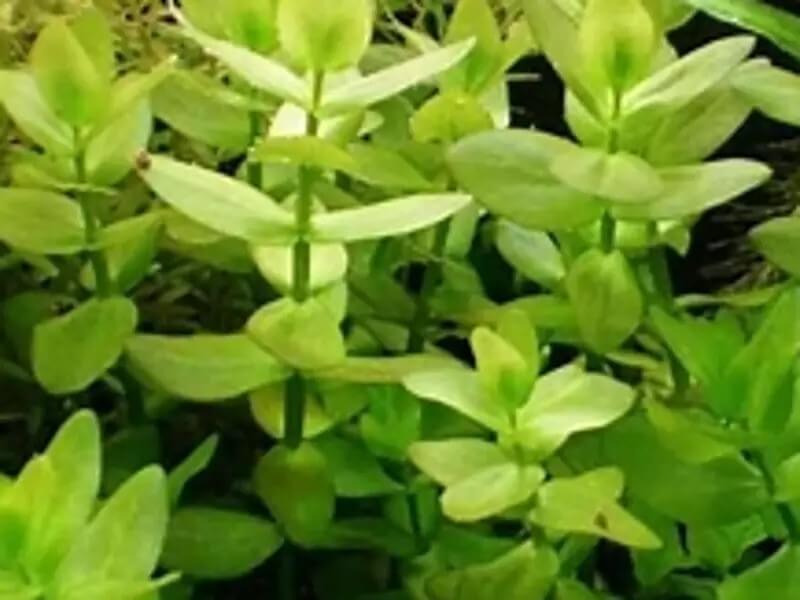
Taiwan Lily
We're big fans of Taiwan Lilies, (we've even created a care guide for the plant), so it's no surprise that it's landed a spot on our list. While the plant doesn't produce the bush-like growth seen in other plants on the list, the Taiwan lily produces a single large lily pad that grows along the water's surface.
Easy to care for, the plant makes an excellent choice for hobbyists looking for a beginner plant with a distinct appearance.
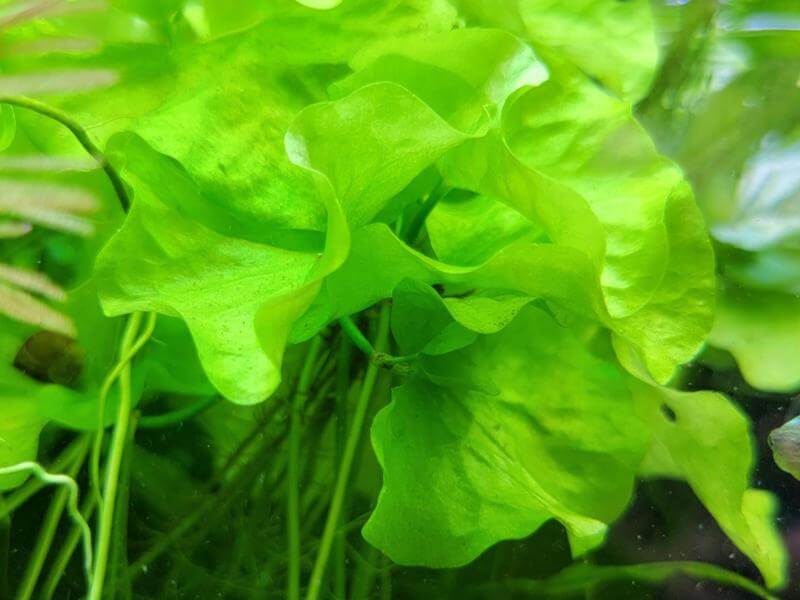
Hornwort
Hornwort is arguably the easiest aquatic plant to keep out of almost every plant seen in the hobby. You can plant it, float it, attach it to rock- the opportunities are endless! Similar to guppy grass, the plant is often recommended for beginners and breeders.
However, the plant does have some drawbacks. Its needle-like leaves can get stuck in your filter intake, and the plant grows INCREDIBLY fast. So fast that it's become an invasive species in several places. The plant's fast growth also means that it may out-compete some of your other plants for available nutrients, but has the upside of making it a strong algae combatant. Advanced aquarists may even float bunches of hornwort in a newly planted tank to keep algae at bay.
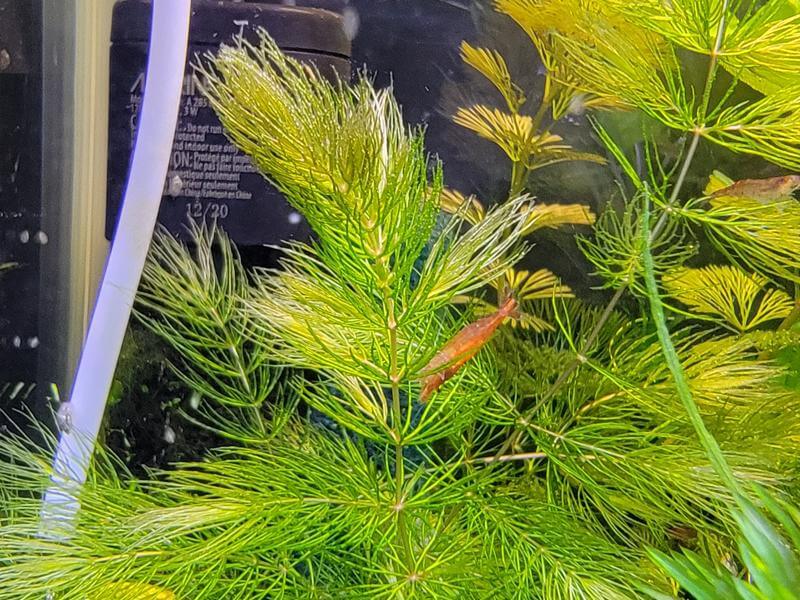
Conclusion
That wraps up our list of 13 of the best aquarium background plants. Do you have a favorite plant that didn't make the list? Let us know in the comments, and be sure to check out our marketplace, where you can shop for some of these plants directly from hobbyists just like yourself.
February's Giveaways on Light Fish
